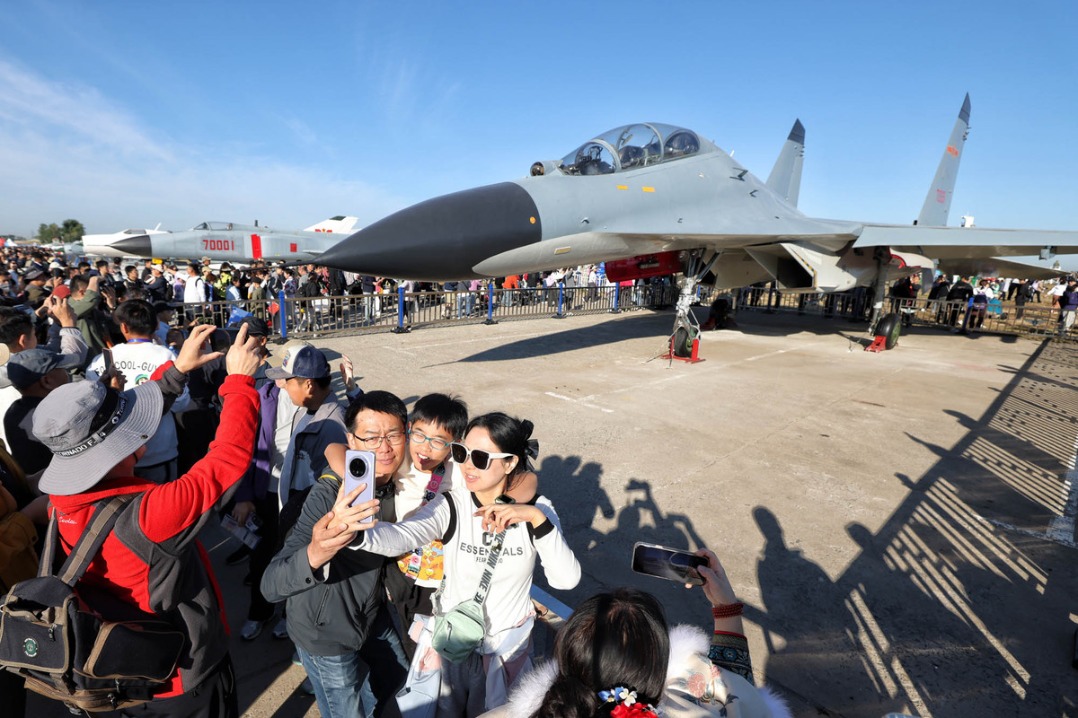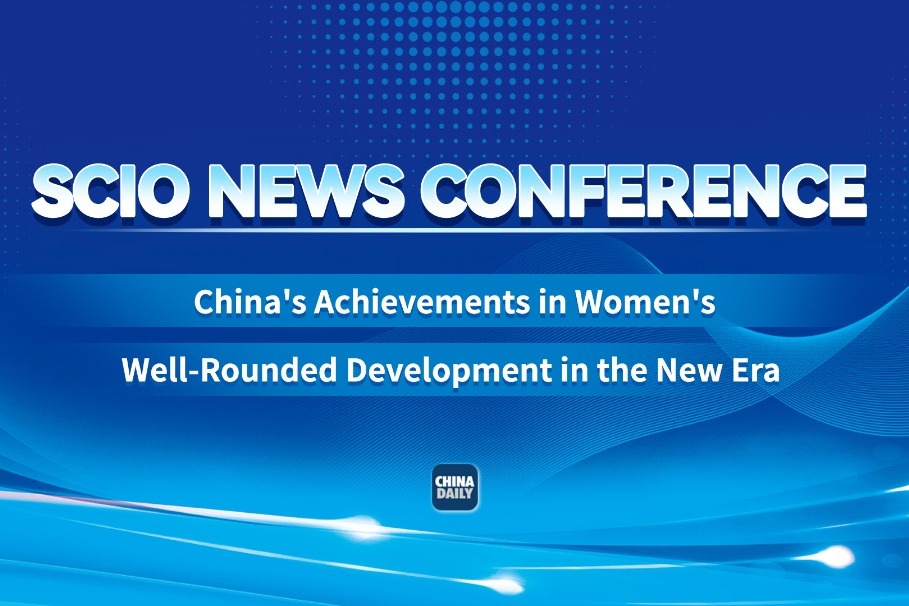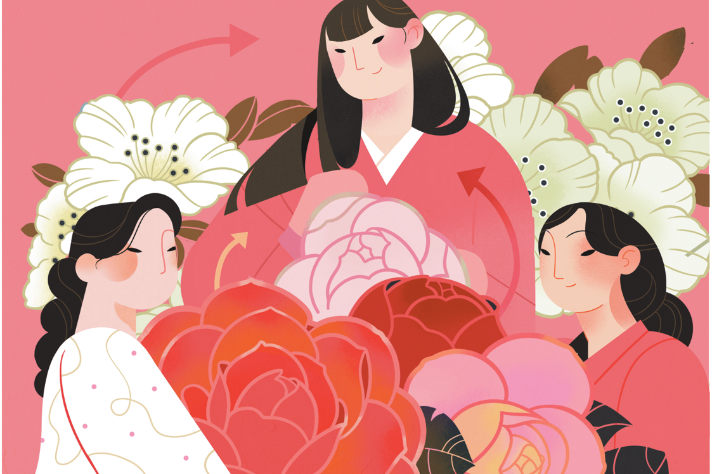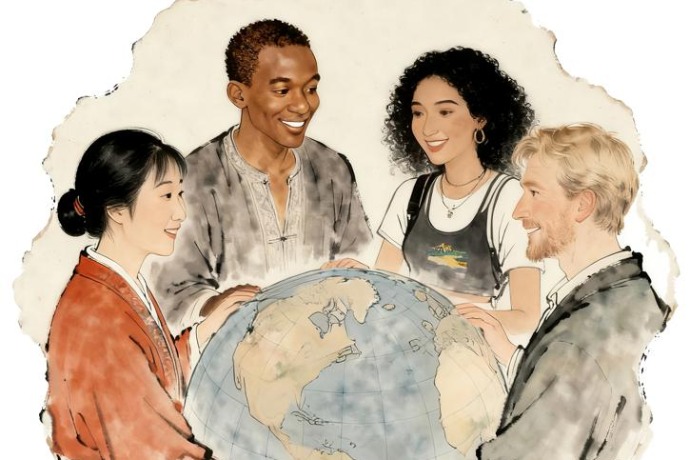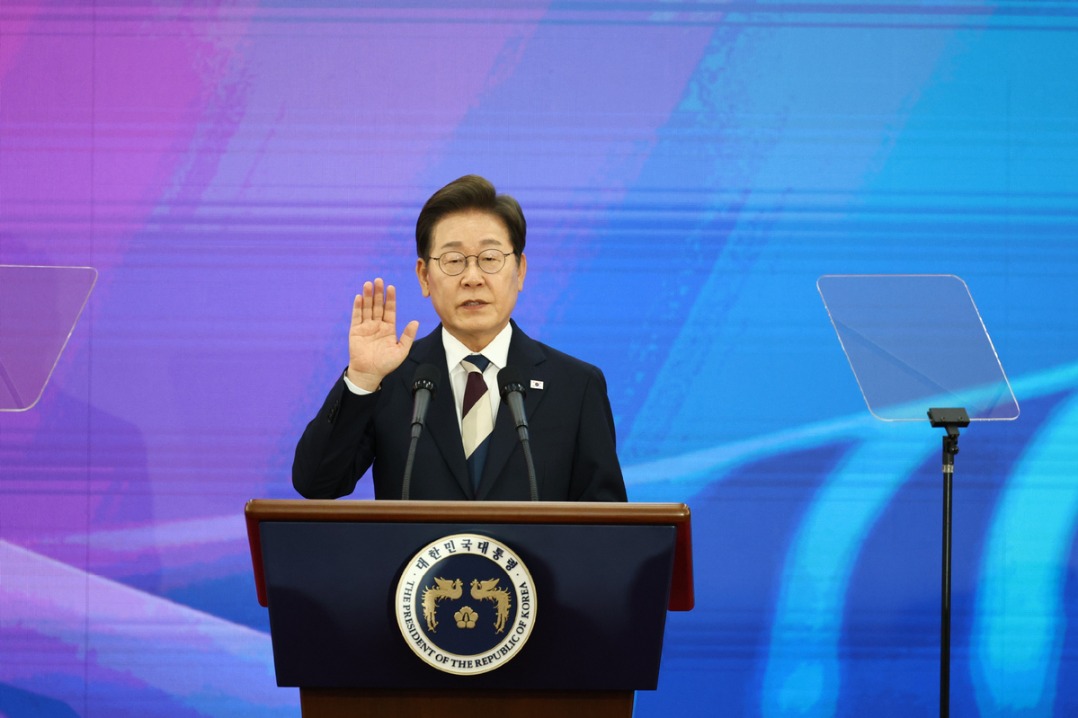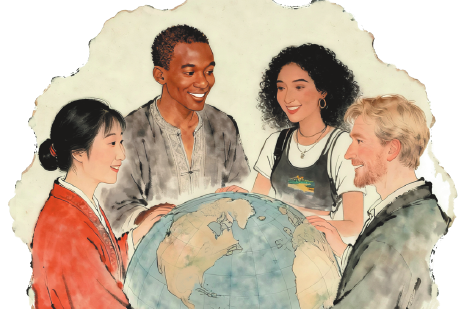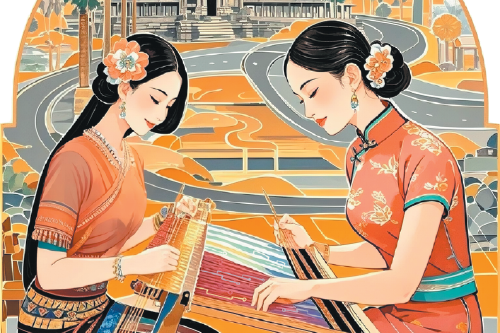Harnessing those who 'hold up half the sky'


With remarkable work already carried out, women's empowerment commitments within the FOCAC could be expanded to make China-Africa cooperation more gender-responsive
During the First World Conference on Women in 1975, the then secretary-general Helvi Sipila, opened the NGO Women's Forum with a keynote speech in which she quoted Chairman Mao Zedong's famous words, arguing that recognizing that "women hold up half the sky" is no less important than the discovery of a new world by Columbus. The recently-concluded 68th annual Commission on the Status of Women (CSW68), the United Nations' largest annual event dedicated to gender equality and women's empowerment, again prompts recurring questions about how far we are from achieving gender equality and how we can unlock the potential for those who hold up half the sky in a way that it is not overshadowed anymore as a crucial avenue for poverty reduction.
Despite progress highlighted in the World Economic Forum's Global Gender Gap Report, indicating a 68.4 percent narrowing of the gender gap by 2023, the COVID-19 pandemic has severely halted advancements, particularly impacting women and girls in education and employment. Another report by the International Monetary Fund highlighted that increasing female workforce participation by 5.9 percent could potentially boost the economies of emerging markets by approximately 8 percent. Empowering women goes beyond social justice, but is a strategic imperative for sustainable development.
The partnership between China and Africa is recognized as one of the most vibrant and dynamic in international development, and the Forum on China-Africa Cooperation — as the most important coordination mechanism — has recognized women as vital agents for poverty reduction and long-term development since the 2006 Beijing Summit. Notably, the Forum has consistently focused on enhancing experience-sharing and supporting capacity-building projects like skills training and employment opportunities.
For example, the 2015 Johannesburg Declaration underscored poverty reduction programs in Africa, particularly focusing on women and children through programs such as vocational training. Similarly, the 2018 Beijing Declaration pledged to increase exchanges among institutions on governance and socioeconomic development to improve gender equality and women's welfare. Women such as Lin Dongmei, deputy director of the China National Engineering Research Center of Juncao Technology, have been at the forefront of such initiatives. Lin's work in agricultural technology transfer programs in Africa, spanning over two decades, has yielded tangible results, such as the "10-square-meter mushroom farm" model introduced in South Africa and Lesotho, enhancing women's production capabilities and entrepreneurial skills.
Interestingly, although the FOCAC declaration for commitments related to women's empowerment often falls under the "cultural and people-to-people exchange category", progress is often made from the spillovers of investment from China, especially through job creation, which to some extent resonates with "invest in women", the thematic priority of this year's International Women's Day. For example, a Sisal farm spanning 1,400 hectares and invested in Tanzania by China-Africa Agriculture Investment Corporation has cumulatively hired more than 10,000 residents by 2020, and women in the communities can walk out of their homes to earn additional income. The investment in the Dazhong Industrial Park in Ondo, Nigeria, has employed over 6,000 individuals, with 40 percent of the workforce females, and contributed to lifting more than 30,000 people out of poverty within the community.
By saying the improvements in women's well-being are a "spillover" (instead of a direct result) of investment, it means somehow, paradoxically, the investments by Chinese companies in most cases did not set gender equality as a core objective or fundamental incentive. Policymakers and development practitioners also face challenges in assessing gaps and planning future projects, as achievements in women's empowerment receive minimal coverage in media and official reports, and data tracking on outcomes, such as women's employment, is scarce. This highlights the lack of a comprehensive gender equity agenda and detailed action plan between China and Africa at the policy level that sufficiently addresses women's vulnerabilities and limited resource access.
Here comes the next profound question — what more could be done? Last December, we co-hosted a public dialogue with Cheung Kong Graduate Business School featuring three female African ambassadors to China — Maria Gustava (ambassador of the Republic of Mozambique), Oliver Wonekha (ambassador of the Republic of Uganda), and Isabel Domingos (ambassador of the Democratic Republic of Sao Tome and Principe) — on forging a China-Africa Partnership in women's empowerment. The dialogue offered several practical insights on gender-responsive development initiatives in terms of facilitating effective resource allocation in targeted programs:
First, despite women constituting over half of the agricultural workforce in Africa, limited access to agricultural machines to scale up production and being constrained in planting subsistence crops due to social norms for household sustenance resulted in lower returns in product markets. Agricultural modernization programs that deliver the needed machinery, skills and financing can make agricultural production more efficient and conducive for women.
Second, in Africa, it is typical for women to operate small businesses and enterprises as a means to supplement household income. However, a notable portion of women-owned SMEs face financial constraints due to the absence of appropriate financial products and distrust in lending practices within formal credit sources. Although supporting SME funding is part of the previous FOCAC commitment, integrating gender-conscious designs is crucial. Financial tools can empower women to expand their businesses, thereby fostering a virtuous cycle and bolstering their resilience.
Third, digital technologies have emerged as a pivotal pathway for poverty reduction. Access to information allows women to explore innovative business ideas, as evidenced by women in China who have seized opportunities through e-commerce and other digital services. While enhancing information and communications technology infrastructure — a collaborative effort to secure internet access — is imperative, there are additional programs such as training initiatives aimed at enhancing digital literacy and entrepreneurship skills among girls and women. These initiatives present opportunities for collaboration among Chinese and African NGOs, as well as the private sector.
All these suggestions underscore a fundamental belief in the capacity of women. The latest Dakar Action Plan of 2021 has added elements aligning with the AU Strategy for Gender Equality and Women's Empowerment (2018-28). The forthcoming summit scheduled for this autumn offers African countries a valuable opportunity to assert their agency by articulating their perspectives to Chinese partners, paving the way for a clear road map. The potential of those who "hold up half the sky" has always been present and does not require re-discovery. What's crucial is removing barriers that hinder women from tapping into their inherent power and wisdom.
The author is the Research and Coordination Analyst at Development Reimaged, an independent international development consultancy headquartered in Beijing. The author contributed this article to China Watch, a think tank powered by China Daily. The views do not necessarily reflect those of China Daily.
Contact the editor at editor@chinawatch.cn.



















